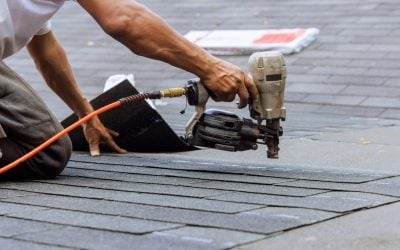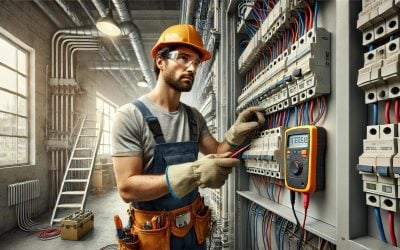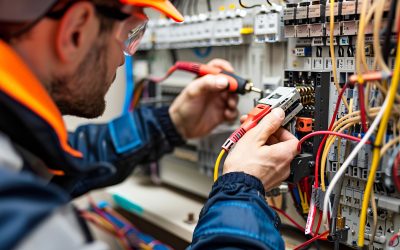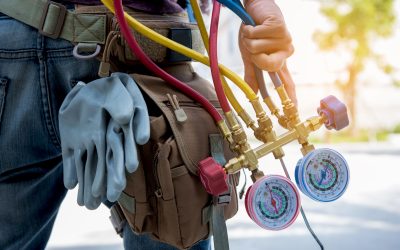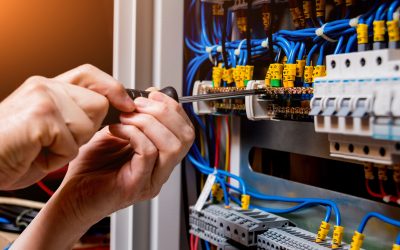Benefits of a Maryland Home Improvement License
How hard is it to get a Maryland Home Improvement License?

Obtaining a Maryland Home Improvement License is a process that involves several steps and can be moderately challenging due to the requirements set forth by the state. In this essay, I’ll delve into the intricacies of acquiring this license, its benefits, and the economic significance of the home improvement industry in Maryland.
Maryland Home Improvement License: Requirements and Process
To acquire a Home Improvement License in Maryland, individuals must adhere to the regulations outlined by the Maryland Home Improvement Commission (MHIC), which oversees the licensing process. The Commission aims to protect consumers by ensuring that contractors meet certain standards of competency and professionalism.
-
Eligibility Criteria: Applicants must be at least 18 years old and possess a high school diploma or equivalent. Additionally, they must have a minimum of two years of work experience in home improvement or a related field.
-
Pre-License Education: Prospective licensees are required to complete a 60-hour pre-licensing course approved by the MHIC. This course covers topics such as business practices, project management, and Maryland laws and regulations related to home improvement.
-
Insurance and Bonds: Applicants must obtain liability insurance and a surety bond as per the MHIC’s requirements. The amount of insurance and bond varies depending on the scope of work the contractor intends to undertake.
-
Passing the Examination: After completing the pre-license education and meeting all other requirements, applicants must pass a written examination administered by the MHIC. The exam assesses the applicant’s knowledge of home improvement practices, business operations, and relevant laws and regulations.
-
Application Process: Once all prerequisites are met, individuals can submit their license application to the MHIC along with the required documents and fees. The application is reviewed by the Commission, and upon approval, the applicant is issued a Home Improvement License.
Benefits of a Maryland Home Improvement License
A Maryland Home Improvement License grants contractors the legal authority to engage in home improvement projects within the state. With this license, contractors can:
-
Legally Operate: Operating without a valid license can result in penalties and legal consequences. Holding a license ensures compliance with state regulations and enhances the contractor’s credibility.
-
Bid on Projects: Many clients require contractors to be licensed before considering them for home improvement projects. Having a license expands the contractor’s pool of potential clients and opportunities.
-
Access to Permits: Some home improvement projects require permits from local authorities. Licensed contractors can obtain these permits on behalf of their clients, streamlining the project process.
-
Consumer Confidence: A Home Improvement License demonstrates the contractor’s commitment to professionalism and competence, instilling confidence in potential clients.
Economic Significance of the Home Improvement Industry in Maryland
The home improvement industry plays a significant role in Maryland’s economy, contributing to job creation, revenue generation, and property value appreciation. According to the latest available data, Maryland’s home improvement industry generates substantial revenue annually, reflecting the state’s robust housing market and consumer demand for renovation and remodeling services.
The total revenue for the state of Maryland in the last year on record was approximately $$351,201,579 million in 2022. This revenue encompasses various sectors within the home improvement industry, including residential remodeling, renovation, repair, and maintenance services.
Factors Driving the Home Improvement Industry in Maryland
- Strong Housing Market: Maryland’s housing market has remained resilient, with steady demand for both new and existing homes. Homeowners often invest in renovation and remodeling projects to increase property value and enhance livability.
- Population Growth: Population growth in urban and suburban areas of Maryland has fueled demand for housing and home improvement services. As more families settle in the state, the need for residential construction and renovation continues to grow.
- Aging Housing Stock: Many homes in Maryland are aging and require renovation and maintenance to meet modern standards of comfort and efficiency. Homeowners frequently undertake renovation projects to upgrade outdated features and improve energy efficiency.
- Investment in Infrastructure: Government initiatives aimed at infrastructure development and urban revitalization contribute to the demand for home improvement services. Renovation projects in commercial and public buildings also contribute to the overall revenue of the home improvement industry.
Conclusion
Obtaining a Maryland Home Improvement License involves fulfilling several requirements, including education, experience, insurance, bonding, and passing an examination. Despite the challenges, acquiring this license offers numerous benefits, including legal compliance, access to clients, and enhanced credibility.
The home improvement industry plays a vital role in Maryland’s economy, generating significant revenue through residential remodeling, renovation, and repair services. With a strong housing market, population growth, and ongoing infrastructure investments, the demand for home improvement services in Maryland is expected to remain robust in the foreseeable future.

See how much roofing knowledge you have with our Free Maryland Home Improvement Roofing test:
Pass your Maryland Home Improvement Exam today with our tests
2018 IBC Roofing Practice Exam
2018 IBC Roofing Practice ExamPass your Oklahoma Roofing Exam with ConfidenceAre you feeling overwhelmed about your upcoming roofing license exam? You're not alone. Many successful...
Maryland Home Improvement Salesperson Free Practice Test
Maryland Home Improvement Salesperson Free Practice TestPass your MHIC Salesperson License Exam for free!Want to pass your Maryland Salesperson exam at PSI on your first try? Practice tests...
ICC T17 Certification Practice Exam
ICC T17 Journeyman Electrician Certification Practice ExamPass your ICC Electrical Certification Exam with ConfidencePreparing for the ICC T17 open-book exam? Don't just rely on the...
NFPA NEC 70 Practice Questions
NFPA 70 NEC 2020 Practice ExamPass your NFPA 70 Certification with ConfidenceElectrical safety isn’t just a requirement—it’s a lifesaving skill. The NFPA NEC 70 certification ensures you...
ICC F11 Free Practice Exam
ICC F11 Free Practice TestPass your ICC F11 Exam for Free!Preparing for your ICC F11 exam? Don’t go in unprepared—test your knowledge with our free practice exam! This Pearson Vue ICC F11 free...
Residential HVAC License Free Exam
Modern Refrigeration and Air ConditioningFree Practice Exam Pass your HVAC License Exam with ConfidenceWorried about achieving the 70% passing score required for your Residential HVAC...
Free Ugly’s Electrical Reference Exam | NEC Practice
Ugly's Electrical References Free Exam(Electrical) Test your knowledge of key concepts and industry standards Are You Ready to Pass Your Electrical License Exam? Stop Worrying and Start...
ICC T16 Master Electrician Practice Exam
ICC T16 Master Electrician Practice Exam(Colorado, Kansas, Missouri, Wyoming) ICC T16 Timed Practice Exam Master Your ICC T16 Electrical Certification: Your Path to Success Feeling...
Maryland Salesperson Fast Practice Exam
Maryland Home Improvement Salesperson Fast Practice Test(Maryland) Contractor License Struggling with Maryland Salesperson License Exam Anxiety? Our Proven Salesperson Exam Prep Makes the...



